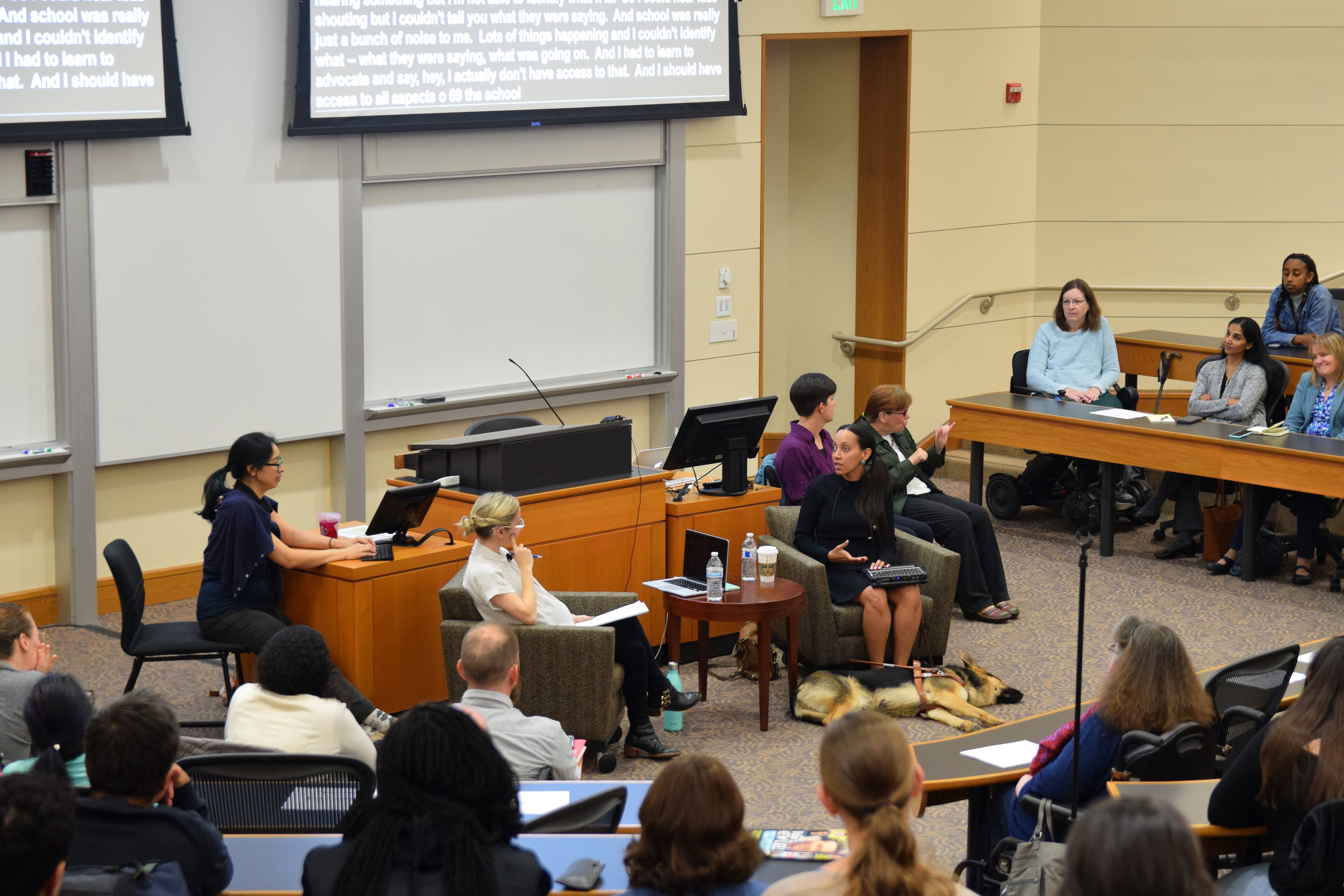Haben Girma is an Oakland native, disability rights lawyer and the first deafblind graduate of Harvard Law School. At age 27, she was recognized by Forbes 30 Under 30 in 2016 for her work and advocacy in law and policy, and was also honored by Obama as a Champion of Change in 2013. On Wednesday, she shared her experiences and insights at Stanford Law School.
Reading from a Braille tablet that produced questions as event moderator and Stanford lecturer Lindsey Felt typed them, Girma addressed questions about pursuing her dreams despite her disability, as well as the powers of technology in advocacy.
The event was jointly hosted by the Diversity and Access Office, the Office of Accessible Education (OAE) and the Stanford Association of Law Students for Disability Rights. It included not just a talk with Girma but also a book signing for Girma’s new memoir, “Haben: The Deafblind Woman Who Conquered Harvard Law.” Girma possesses near-total lack of sight and hearing, a combination that makes common paths of education difficult.
“I was warned by so many people that law school would be incredibly difficult and there’s tons and tons of reading,” Girma said. “But, I like reading.”
Girma’s memoir highlights her childhood growing up as a first-generation African American in a refugee household in Oakland, California. She quotes her parents as being a strong force in her life inspiring her to persevere through the struggles they faced emigrating from her home in Eritrea. Girma was moved to put her story to paper because it’s what she does daily: “Writing is also a form of advocacy.”
Girma’s appreciation of literacy belied her childhood experience of education as a particular source of adversity. She cited specific instances of problems at school, especially teachers who didn’t take her needs into account.
“Disabled students should also have that same privilege to just be a student, rather than having to be a student, an advocate, a teacher,” she said.
“When you’re disabled and you’re in an environment that’s not accessible, you’re forced to mature and grow up very quickly,” she added.
And that maturity is a blessing, she said, adding that she wishes “there were more access and more inclusion for all kids with disabilities.”
Girma also said that ableism, “the idea that people with disabilities are inferior to the nondisabled,” is an ongoing opponent in the world and, for her, it’s an opponent in everything from hailing an Uber to getting a job.
Girma has been a lifelong advocate for individuals with disabilities, and in the process, has many times served as an advocate for herself. She recalled using the Americans with Disabilities Act (ADA) to fight injustices in her own life, describing the ADA as being a key role in her decision to become a disability rights lawyer.
“As a deafblind student in college, I witnessed advocates using the Americans with Disabilities Act (ADA) to change social attitudes,” she wrote on her website. “Impressed by the success of these advocates, I felt inspired to join them.”
On Wednesday, Girma proposed that the key in fighting ableism and increasing accessibility lies at the intersection of accessibility and technology: “Technology is great when we design with inclusion in mind.”
She witnessed technology advance as she grew up, and she believes “the solutions we use should also adapt and change.”
“We wanted to celebrate disability awareness this month and continue to have the disabled community here at Stanford have a voice and be brought into the discussions that are happening all the time about diversity and inclusion,” said Robin Cole, one of the event organizers in the OAE. “Sometimes that is a group that is not always represented.”
Correction: This article has been corrected to indicate that the event was jointly hosted by Diversity and Access Office, the Office of Accessible Education, and the Stanford Association of Law Students for Disability Rights.
Contact Lauryn Johnson at lauryn‘at’ stanford.edu.
